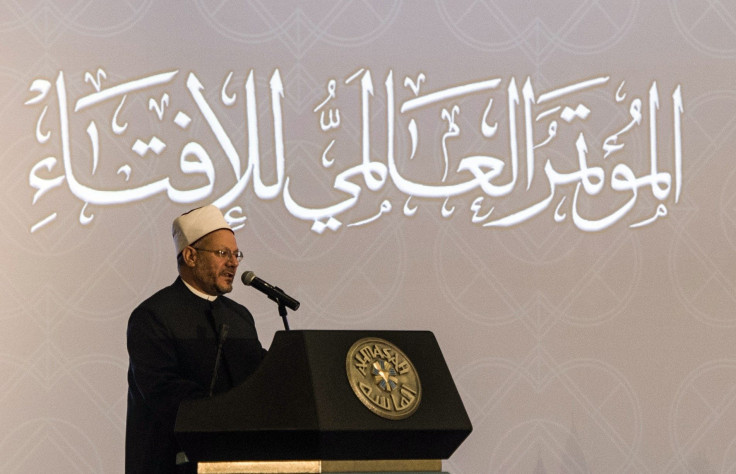Does Islamic Law Forbid Bitcoin? Egyptian Mufti Says Yes, But Many Disagree

One of Egypt’s most prominent religious leaders, the Grand Mufti Sheikh Shawki Allam, delivered a fatwa on Jan. 1 claiming Islamic law might prohibit bitcoin because it carries a high risk of “fraudulence” and “cheating.” He said cryptocurrency is riskier than fiat currency because it isn’t regulated by the government.
Bitcoin has been making waves since Egypt’s first local bitcoin exchange opened last August. Yet civil unrest has inspired many cryptocurrency enthusiasts in Egypt to keep their new hobby a secret. The political situation is tense. High inflation rates make life harder for more than half of the 95 million residents who live on or close to the poverty line. On the other hand, entrepreneurial Egyptians are a driving force in Africa’s emerging tech industry. Could Allam’s declaration be a response to the type of unregulated bitcoin activity spreading across Iran?
Some Muslim leaders, such as Turkey's Directorate of Religious Affairs and Saudi cleric Assim Al-Hakeem, have declared bitcoin is forbidden to Muslims. Two common themes among the naysayers are a concern about bitcoin’s lack of centralized regulation and tangible backing.
“The bottom line on bitcoin and Islamic law is that cryptocurrency is a currency. And its permissibility under Islamic law must be evaluated on the same criteria as any other currency including the U.S. dollar,” Imad-ad-Dean Ahmad, president of an Islamic libertarian organization in Maryland called the Minaret of Freedom Institute, told International Business Times. “In Islamic law, money always has to be backed... some scholars have been arguing it is backed because of mining, that it is backed by the work involved to get it.”
The fact that bitcoin’s code limits production to 21 million also lends some credibility to this argument, because the blockchain-based currency is technically backed by a finite amount of data. Many aspects of bitcoin’s core value are still widely debated by Muslim scholars. Some bitcoin users, including Afghan entrepreneur Roya Mahboob, liken bitcoin to hawalah, a type of debt or bill of exchange used within a community. In this way, bitcoin’s community ethos actually has precedent in pre-modern Islamic societies.
One of the most influential Arab scholars before colonialism, 14th century historian Ibn Khaldun, described free economic choice and the “labor theory of value” long before European economists ever pondered free markets or self-sovereign identity. Khaldun argued labor is one source of value and that there are different types of profit. None of these were inherently risk-free. “The concept of a nation-state in the Muslim world only dates back to colonialism,” Ahmed Gatnash, the co-founder of the Muslim human rights organization Kawaakibi Foundation, told IBT. “It wasn’t considered natural for a government to have control over the financial system... so when I think about decentralization and taking money out of the hands of politicians, it fits very well with Islamic history.”
Some critics feel Allam’s fatwa had little to do with the mechanics of cryptocurrency and even less correlation to Muslim ideology. Instead, Allam’s statement may reveal concerns about Egypt's political stability. “His job is basically to deliver religious rulings that support the state,” Gatnash said. “Part of the struggle that is being waged in the Muslim world right now is these states that call themselves Islamic, like Iran and Saudi Arabia, have much more in common with conventional totalitarian states than they do with Islamic history.”
Diverse Muslims from Dubai to Karachi routinely use cryptocurrency without controversy. In December, The National reported the United Arab Emirates and Saudi Arabia are working together on a cross-border cryptocurrency project. Throughout history Muslims have upheld the idea of a global Ummah, a community that trumps politics. Islamic law certainly advises peaceful cooperation with rulers, but there isn’t historic precedent for all money being inherently controlled by the state.
“In Islamic law, by custom, it is always allowed for people to issue notes of exchange within a closed system,” Ahmad said. “When it comes to the statement by the mufti in Egypt, and I believe there was a similar one by a Turkish [mufti], those criticisms of bitcoin don’t seem to me to be based in the problematic aspects of finance.” Islamic law does explicitly forbid gambling, criminal activity and exploitive accumulation of interest. As long as bitcoin itself, not the people who use it, doesn’t rely on these problematic use cases then cryptocurrency differs little from paper money. Bitcoin can be used for fraud and “cheating,” just like dollars.
Many fiat currencies across the Middle East, including Egypt and Turkey, were drastically devalued over the past few years. Leaders in these nations may be especially skeptical of a global currency that is tricky to regulate. “In lots of Arab countries you have financial crisis because of a variety of reasons such as mismanagement of the economy, corruption,” Gatnash said. “The promise of blockchain technology, and cryptocurrency especially, won’t be fulfilled until people start looking at the bigger context. Start looking outside of their own bubbles.”
© Copyright IBTimes 2024. All rights reserved.





















